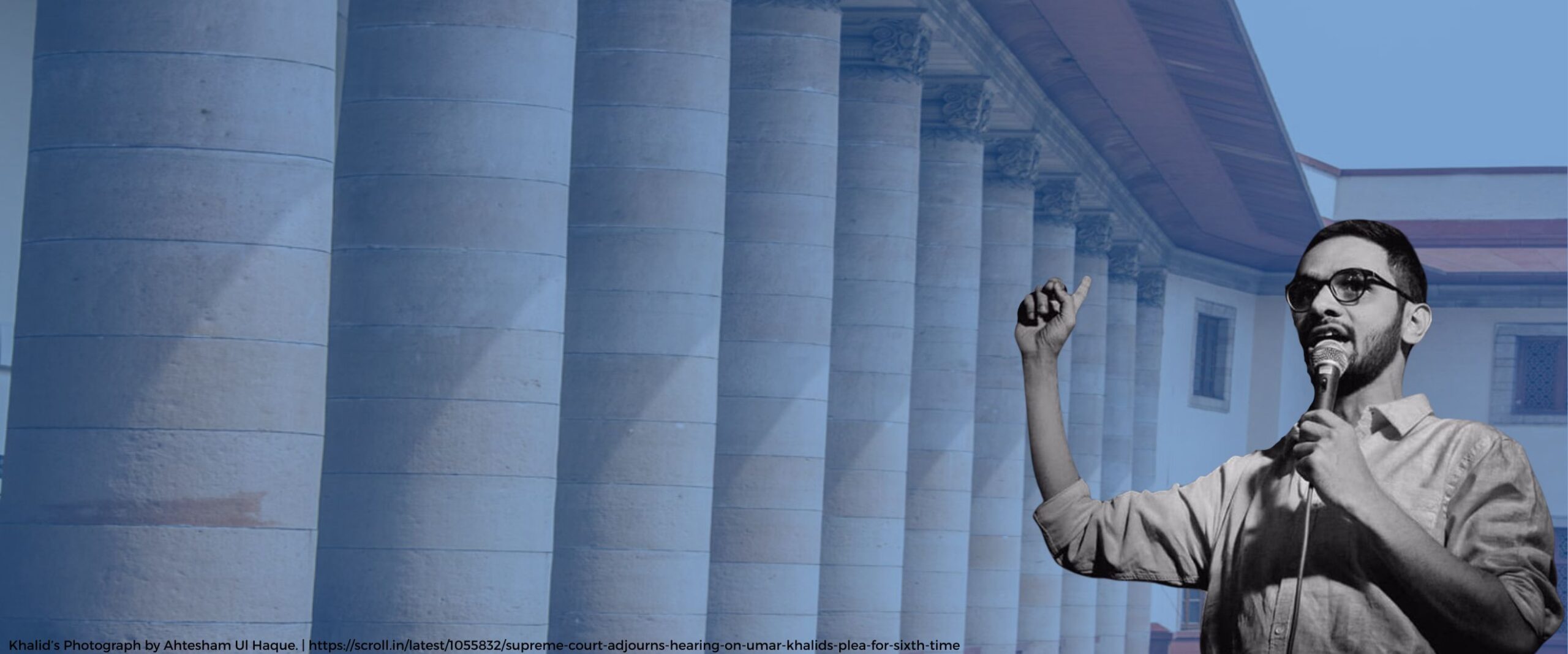Analysis
“This was not a spontaneous riot but a choreographed attack on the sovereignty of the nation”: SG Mehta opposes bail in Delhi Riots conspiracy case
Delhi Police disputes delay narrative, says speeches, WhatsApp chats and conduct show that protests were orchestrated, not spontaneous

Today, the Bench of Justices Aravind Kumar and N.V. Anjaria heard objections from the Delhi Police to the bail pleas filed by Umar Khalid, Sharjeel Imam, Gulfisha Fatima, Shadab Ahmed and others in the 2020 Delhi riots matter.
Appearing for the Delhi Police, Solicitor General Tushar Mehta and Additional Solicitor General S.V. Raju argued that the petitioners had built an inaccurate narrative about delay and the protests while avoiding the merits of the allegations.
In the previous hearings, Senior Advocates Kapil Sibal, Abhishek Manu Singhvi and Sidharth Luthra had appeared for Khalid and the co-accused to maintain that the prosecution had produced neither weapons nor evidence of violence. They submitted that the record did not support the allegation of a premeditated UAPA conspiracy.
Mehta: ‘Narrative and facts have diverged’
Mehta submitted that the Court must begin with two uncontroverted propositions—that there was a protest and that it culminated in communal riots. These riots, he submitted, were “not spontaneous but well-crafted, orchestrated, preplanned and choreographed,” amounting to “an attack against the sovereignty of the nation.” The “myth of spontaneity,” he said, needed to be dispelled.
Relying extensively on statements attributed to Sharjeel Imam, Mehta argued that the speeches revealed a deliberate attempt to divide and destabilise by including; calls for a chakka jam in “every city where Muslims reside,” questions about Muslims being “capable of shutting down Delhi,” remarks that the spread of riots was prevented only due to security forces, references to separating Northeastern states from the rest of India and statements asserting that “Delhi should not get milk.”
Mehta added that the Delhi Police had recovered photographs of meetings from an accused’s device, and Whatsapp chats describing how property was to be damaged. According to him, the petitioners’ strategy was clear, “Delay the trial, avoid the merits, and then ask for bail.” He maintained that the Delhi Police was ready to complete the trial within six months.
Raju: Parity cannot stand after Supreme Court rejected High Court’s interpretation
Raju submitted that the accused relied on parity, delay and successive bail pleas while “avoiding the merits entirely.” On parity, he said that the bail orders invoked by the petitioners had been immediately restricted by the Supreme Court. On 15 June 2021, the Delhi High Court had granted bail to Devangana Kalita, Natasha Narwal and Asif Iqbal Tanha. When these were challenged by the Delhi Police, the Supreme Court directed that the High Court’s statutory interpretation of Section 43D(5) of the Unlawful Activities (Prevention) Act, 1967 “may not be treated as precedent.” On 2 May 2023 it reiterated this direction while dismissing the appeals.
Raju said the High Court committed two major errors: first, concluding that Section 43D(5) would not apply unless the alleged conduct pertained to the “defence of India,” and second, invoking Section 439 CrPC despite lack of authority
Responding to the argument that the Supreme Court never cancelled the 2021 bail orders, Raju cited Sanjay Gandhi v. Union of India (1978) to clarify that cancellation and rejection of bail operate in distinct jurisdictions; therefore, the Court’s choice not to cancel an earlier order does not justify parity.
Successive bail pleas, delay, and the Delhi Police’s counter-narrative
Raju then detailed the procedural history of Khalid’s bail applications. The Delhi High Court rejected his plea on 18 October 2022 and after appealing to the Supreme Court, Khalid himself withdrew the application on 14 February 2024 as the Court signalled its disinclination to interfere. Raju argued that successive bail petitions cannot be entertained without a material change in circumstances.
On the question of delay, Raju read from multiple Trial Court orders to argue that proceedings were repeatedly stalled by the accused, including those already on bail, who resisted commencement of arguments on charge.
The Court will continue to hear the matter on 20 November.
